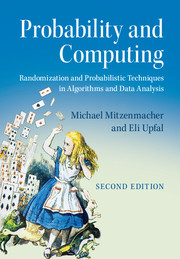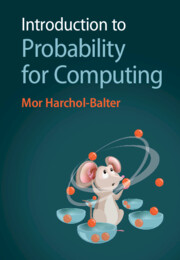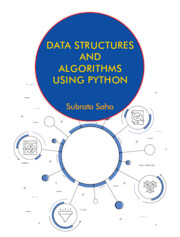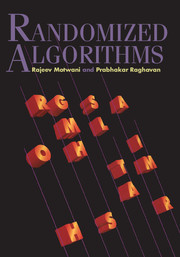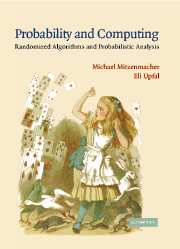Probability and Computing
Greatly expanded, this new edition requires only an elementary background in discrete mathematics and offers a comprehensive introduction to the role of randomization and probabilistic techniques in modern computer science. Newly added chapters and sections cover topics including normal distributions, sample complexity, VC dimension, Rademacher complexity, power laws and related distributions, cuckoo hashing, and the Lovasz Local Lemma. Material relevant to machine learning and big data analysis enables students to learn modern techniques and applications. Among the many new exercises and examples are programming-related exercises that provide students with excellent training in solving relevant problems. This book provides an indispensable teaching tool to accompany a one- or two-semester course for advanced undergraduate students in computer science and applied mathematics.
- Contains all the background in probability needed to understand many subdisciplines of computer science
- Includes new material relevant to machine learning and big data analysis, enabling students to learn new, up-to-date techniques and applications
- Newly added chapters and sections cover the normal distribution, sample complexity, VC dimension, naïve Bayes, cuckoo hashing, power laws, and the Lovasz Local Lemma
- Many new exercises and examples, including several new programming-related exercises, provide students with excellent training in problem solving
Reviews & endorsements
'As randomized methods continue to grow in importance, this textbook provides a rigorous yet accessible introduction to fundamental concepts that need to be widely known. The new chapters in this second edition, about sample size and power laws, make it especially valuable for today's applications.' Donald E. Knuth, Stanford University, California
'Of all the courses I have taught at Berkeley, my favorite is the one based on the Mitzenmacher-Upfal book Probability and Computing. Students appreciate the clarity and crispness of the arguments and the relevance of the material to the study of algorithms. The new second edition adds much important material on continuous random variables, entropy, randomness and information, advanced data structures and topics of current interest related to machine learning and the analysis of large data sets.' Richard M. Karp, University of California, Berkeley
'The new edition is great. I'm especially excited that the authors have added sections on the normal distribution, learning theory and power laws. This is just what the doctor ordered or, more precisely, what teachers such as myself ordered!' Anna Karlin, University of Washington
'By assuming just an elementary introduction to discrete probability and some mathematical maturity, this book does an excellent job of introducing a great variety of topics to the reader. I especially liked the coverage of the Poisson, exponential, and (multi-variate) normal distributions and how they arise naturally, machine learning, Bayesian reasoning, Cuckoo hashing etc. There is a broad range of exercises, including helpful ones on programming to get a feel for the numerics … This connection to practice is unusual and very commendable … Overall, I would highly recommend this book to anyone interested in probabilistic and statistical foundations as applied to computer science, data science, etc. It can be taught at the senior undergraduate or graduate level to students in computer science, electrical engineering, operations research, mathematics, and other such disciplines.' Frederic Green , SIGACT News
Product details
June 2017Adobe eBook Reader
9781108110723
0 pages
0kg
8 b/w illus. 1 table
This ISBN is for an eBook version which is distributed on our behalf by a third party.
Table of Contents
- 1. Events and probability
- 2. Discrete random variables and expectations
- 3. Moments and deviations
- 4. Chernoff and Hoeffding bounds
- 5. Balls, bins, and random graphs
- 6. The probabilistic method
- 7. Markov chains and random walks
- 8. Continuous distributions and the Polsson process
- 9. The normal distribution
- 10. Entropy, randomness, and information
- 11. The Monte Carlo method
- 12. Coupling of Markov chains
- 13. Martingales
- 14. Sample complexity, VC dimension, and Rademacher complexity
- 15. Pairwise independence and universal hash functions
- 16. Power laws and related distributions
- 17. Balanced allocations and cuckoo hashing.

